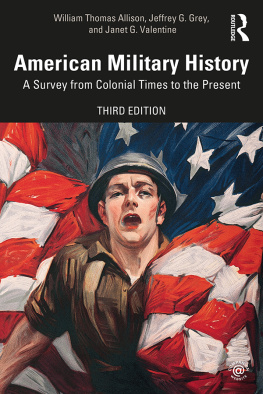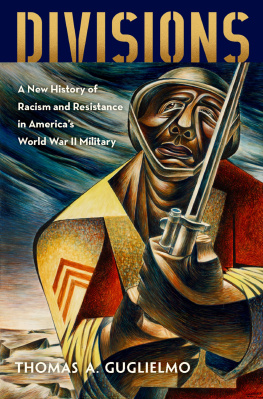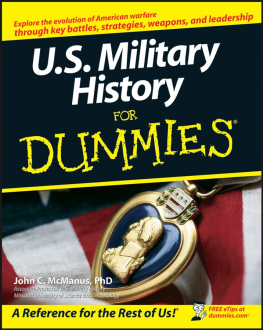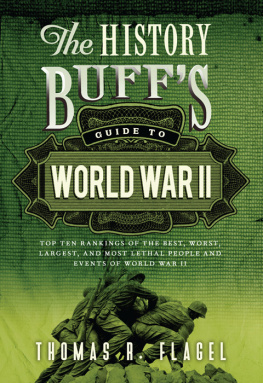Thomas Ayres - A Military Miscellany: From Bunker Hill to Baghdad: Important, Uncommon, and Sometimes Forgotten Facts, Lists, and Stories from America#s Military History
Here you can read online Thomas Ayres - A Military Miscellany: From Bunker Hill to Baghdad: Important, Uncommon, and Sometimes Forgotten Facts, Lists, and Stories from America#s Military History full text of the book (entire story) in english for free. Download pdf and epub, get meaning, cover and reviews about this ebook. year: 2008, publisher: Random House Publishing Group, genre: History. Description of the work, (preface) as well as reviews are available. Best literature library LitArk.com created for fans of good reading and offers a wide selection of genres:
Romance novel
Science fiction
Adventure
Detective
Science
History
Home and family
Prose
Art
Politics
Computer
Non-fiction
Religion
Business
Children
Humor
Choose a favorite category and find really read worthwhile books. Enjoy immersion in the world of imagination, feel the emotions of the characters or learn something new for yourself, make an fascinating discovery.

- Book:A Military Miscellany: From Bunker Hill to Baghdad: Important, Uncommon, and Sometimes Forgotten Facts, Lists, and Stories from America#s Military History
- Author:
- Publisher:Random House Publishing Group
- Genre:
- Year:2008
- Rating:5 / 5
- Favourites:Add to favourites
- Your mark:
A Military Miscellany: From Bunker Hill to Baghdad: Important, Uncommon, and Sometimes Forgotten Facts, Lists, and Stories from America#s Military History: summary, description and annotation
We offer to read an annotation, description, summary or preface (depends on what the author of the book "A Military Miscellany: From Bunker Hill to Baghdad: Important, Uncommon, and Sometimes Forgotten Facts, Lists, and Stories from America#s Military History" wrote himself). If you haven't found the necessary information about the book — write in the comments, we will try to find it.
Did you know that American soldiers have been sent to invade foreign nations or their territories more than two hundred times since Thomas Jefferson dispatched troops to North Africa in 1803 to punish Muslim pirates? Or that during the Vietnam War a can opener was called a John Wayne? Or that a downed World War II airman once trekked across Germany, through occupied France, and across the mountains into Spain to avoid captureonly to be treated as a spy because Allied military intelligence said it couldnt be done?
Open this book anywhere and youll find yourself instantly captivated. From the peace president who was our most frequent practitioner of gunboat diplomacy to the Revolutionary War hero whose refusal to cut his hair set off a four-year rebellion that went all the way to the White House, theres plenty of fascinating lore herefrom the monumental to the trivialin an indispensable encyclopedic work that takes up where ordinary history books leave off.
Thomas Ayres: author's other books
Who wrote A Military Miscellany: From Bunker Hill to Baghdad: Important, Uncommon, and Sometimes Forgotten Facts, Lists, and Stories from America#s Military History? Find out the surname, the name of the author of the book and a list of all author's works by series.





![Fawcett - How to lose the Civil War : [military mistakes of the War between the States]](/uploads/posts/book/92687/thumbs/fawcett-how-to-lose-the-civil-war-military.jpg)





 NOTABLE QUOTE
NOTABLE QUOTE
